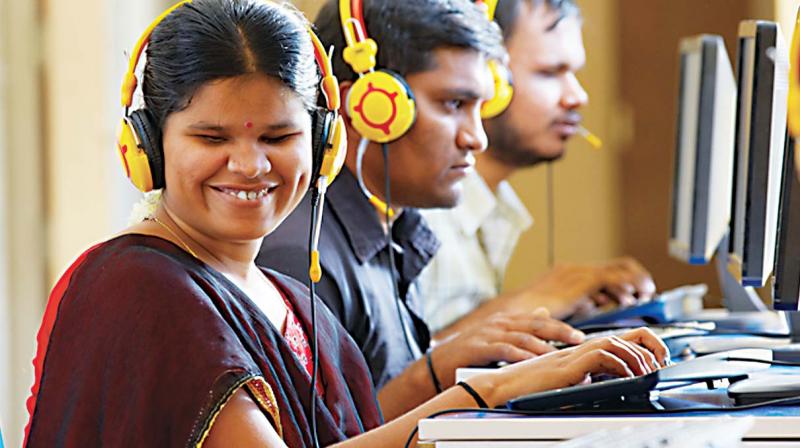Bengaluru: E-governance space has many blind spots
While digitisation of India is an integral motive of the government, e-governance has become a blind spot for persons with disability.

BENGALURU: Being in an era of e-governance where all our day-to-day transactions are just a click away, but people born with disabilities are fighting for inclusion with respect to digital space.
Siddaraju N, a young visually impaired gentleman, has received a notice from the ESI department to pay up a huge penalty for violating 'The Rights of Persons with Disabilities Act, 2016 (RPD Act) despite making many requests to get his ESI account cancelled. Siddaraju, who is also coordinator of National Federation of the Blind, Mysore sub-branch, has entered the court of the State Commissioner for Persons with Disability.
Speaking of his rights being violated, he said, "The notice that I received was not in Braille format. The websites are not user-friendly for the blind and, I was unaware of the guidelines as this was also not available in the Braille format. Thus, irrespective of RPD Act being functional, there is no inclusion leading to violation of our rights."
"Digital Accessibility is a human right. When any government is working towards implementing e-governance system, it should be accessible or should be inclusive for all kinds of people. When this is not happening, human rights are considered as violated. When it is inaccessible, these sections of society are excluded and denied of empowerment," said Prashanth M N, National Youth Coordinator, National Federation of the Blind.
He further remarked, "National Informatics Centre set up by the Centre has formulated guidelines for websites only. We are demanding the entire digital space to be made accessible for persons with disability, particularly for persons with blindness. Further to this, RPD Act was mandated to be notified within six months since its introduction, by the state governments. But, this also hasn't happened till date."
He thus said that true essence of accessibility has been explained in 'Web Content Accessibility Guidelines 2.1 whose implementation will actually preserve the spirit of accessibility and inclusivity.
Basavaraju, State Commissioner of Persons' with Disability office said, "GoI is working on the Accessibility India Campaign which strives to make persons with disability independent. While some departments have already become accessible and user-friendly, a few are still working."
Siddaraju and Prashanth also pointed out that certain applications like Bhim App is also not inclusive. "Thus, when the central government's app is by itself not inclusive for the disabled, then how can we expect private digital kiosks to be inclusive?", they wonder.
Prashanth questioned, "Why is the government hesitating or lagging in implementing a move that will actually empower and encourage inclusion of a section that is excluded from the digital space?"
He calls for the setting up of an autonomous agency that will monitor and certify the digital space of government bodies which will also periodically audit the enforcement of compliance of the digital space as per the provisions (section 48) of the RPD Act.
While digitisation of India is an integral motive of the government, e-governance has become a blind spot for persons with disability, with special reference to the blind. "Once the act is notified by the state government, only then will the dream of inclusion through accessibility become a reality," Prashanth hoped.

